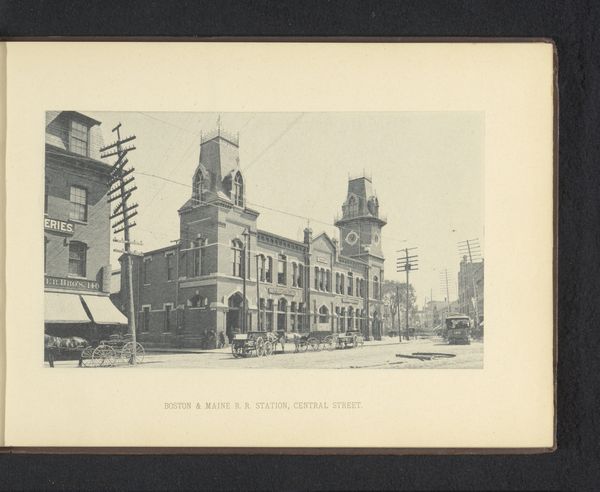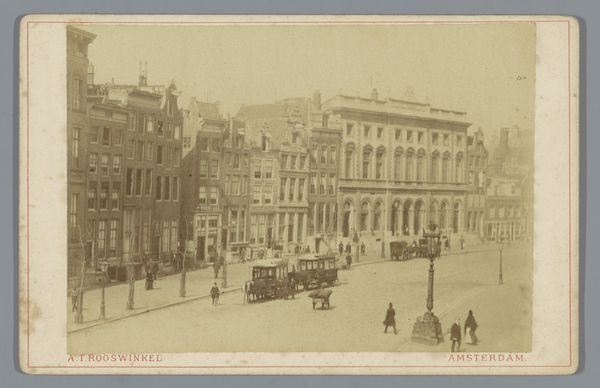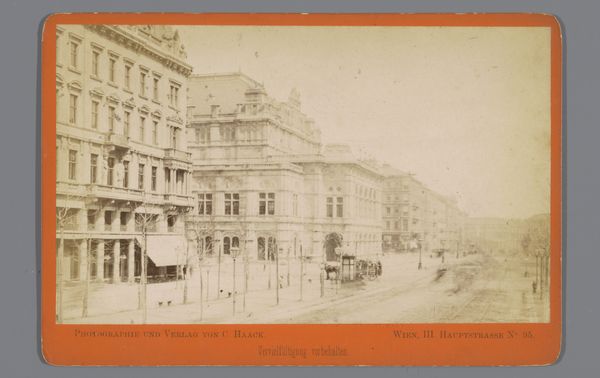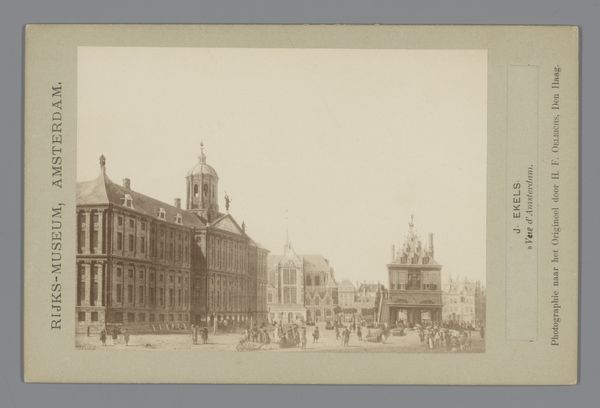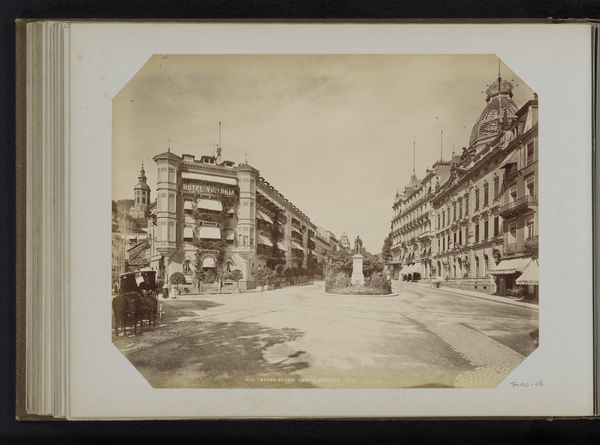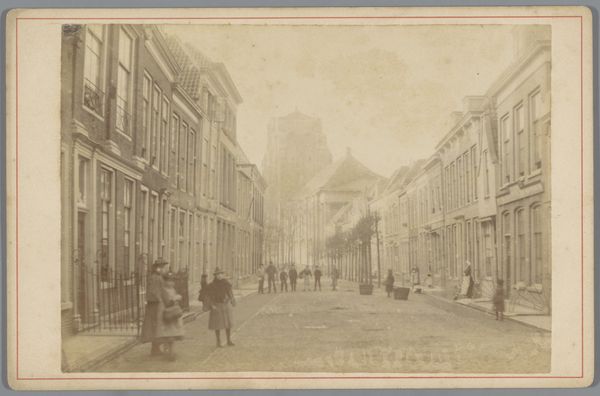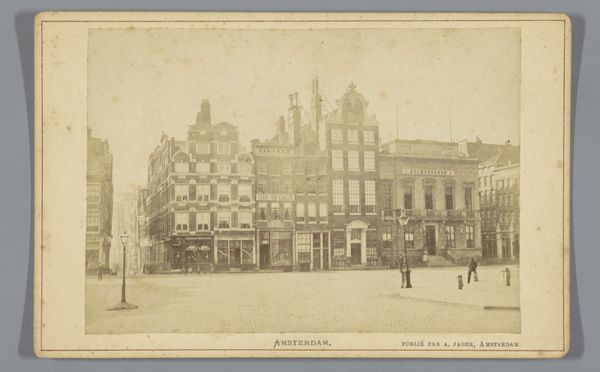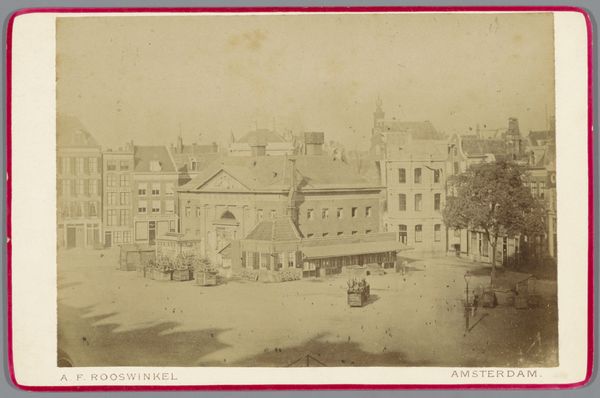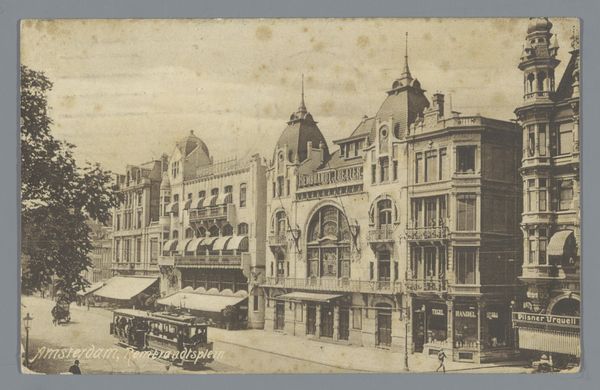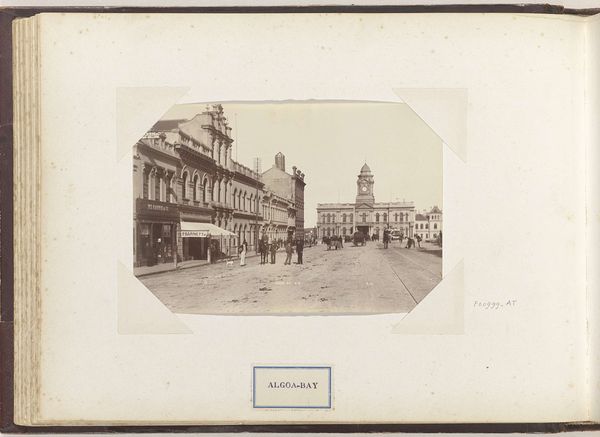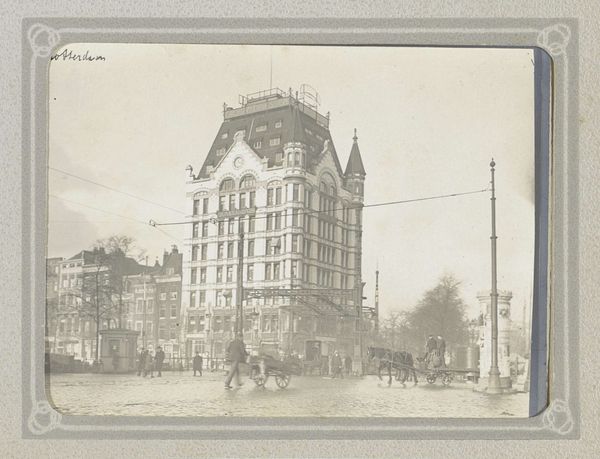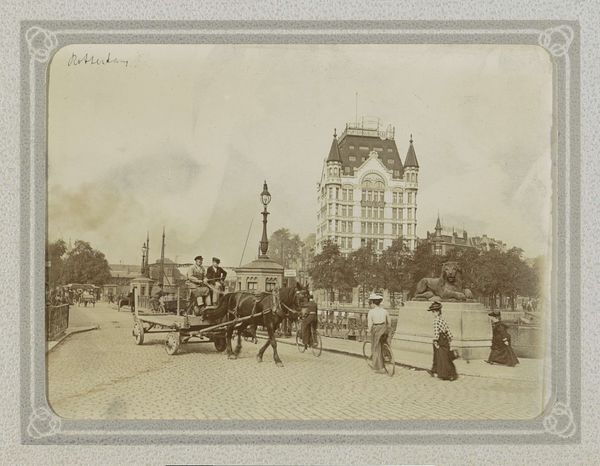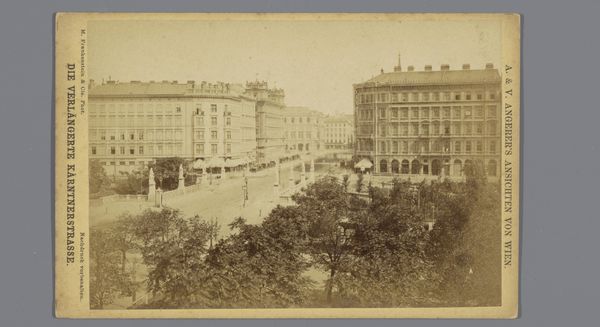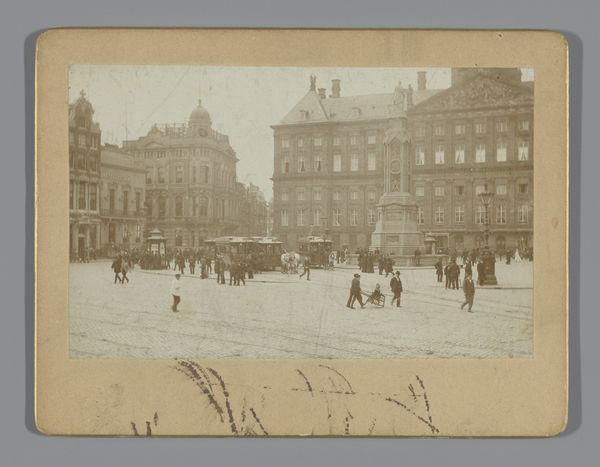
photography, gelatin-silver-print
#
street-photography
#
photography
#
gelatin-silver-print
#
cityscape
Dimensions: height 107 mm, width 167 mm
Copyright: Rijks Museum: Open Domain
Andries Jager captured this view of Leidseplein in Amsterdam using a photographic process that was rapidly changing in his era. Photography in Jager’s time was a complex interplay of chemistry, optics, and skilled labor. Glass plate negatives coated with light-sensitive emulsions were exposed in large format cameras, then meticulously developed in darkrooms. The sepia tones of this print are characteristic of early photographic processes. Notice how the sharpness varies across the image, a common trait due to the limitations of early lenses and exposure techniques. What's interesting is the labor involved; from the anonymous workers preparing photographic materials in factories, to Jager himself carefully composing and developing the image. Also, consider the social implications of photography. It democratized image-making, offering new ways to document and disseminate information. The photograph itself becomes a commodity, reproducible and widely distributed. Paying attention to materials, processes, and social context allows us to reflect on the impact of technology on art and society in the 19th century.
Comments
No comments
Be the first to comment and join the conversation on the ultimate creative platform.
